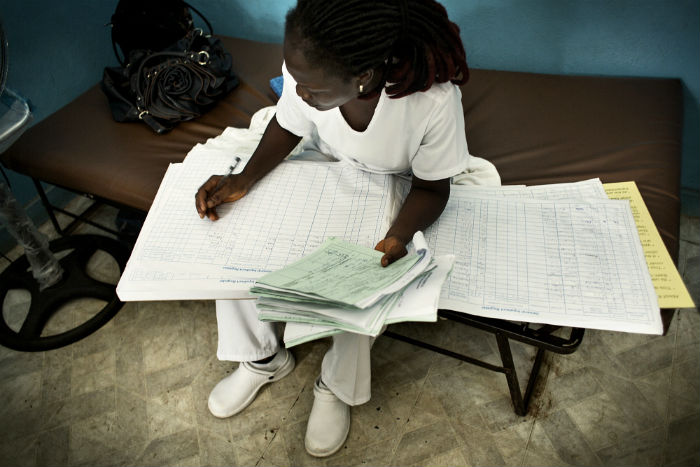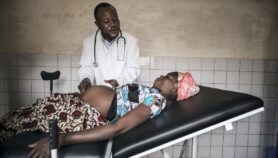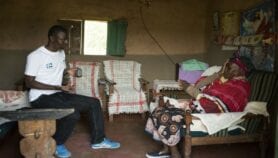By: Sam Otieno
Send to a friend
The details you provide on this page will not be used to send unsolicited email, and will not be sold to a 3rd party. See privacy policy.
[KIGALI, RWANDA] Sub-Saharan Africa needs to effectively integrate information and communication technology (ICTs) into health systems to help combat disease burden, a forum has heard.
For instance, Rwanda adopted the use of drones to deliver blood in 15 minutes, a task that took 2-3 hours before, thus saving lives and money, according to Andrew Rugege, regional director of International Telecommunication Union (ITU).
Experts explained that for a continent where health systems are under pressure to improve quality, accessibility and affordability, the need to adopt the numerous benefits of ICTs such as telemedicine-the remote diagnosis and treatment of patients by means of telecommunications technology- in healthcare provision is necessary.
Also, they said, given that health is essential for socioeconomic development, African countries need to work collaboratively, to enable translation of the Africa Union’s Agenda 2063 on health into reality.
Agenda 2063 launched in 2013 is a strategic framework for the socio-economic transformation of the continent over the next 50 years.
“ICT should be used as a tool for efficient services delivery in all health departments. ”
Andrew Rugege, regional director of International Telecommunication Union
The observations were made during the First World Health Organisation Africa Health Forum held in Rwanda last month (27-28 June), organised by WHO AFRO and Rwanda’s Ministry of Health.
A wide range of players in the African health sector such as ministers, financial institutions, civil society, scientists, the academia and international development partners gathered at the meeting to discuss concrete plans for achieving effective health systems.
Rugege tells SciDev.Net that for Africa to achieve health goals such as those in SDGs, healthy lives and universal health care delivery, there is need for a paradigm shift to full adoption of digital health.
“ICT should be used as a tool for efficient services delivery in all health departments. For example, doctors should [change] from paper storage of information to soft copy space that is easy for recordkeeping of patients and staffs information,” says Rugege.
He adds that there is need for national central system platform that will assist in diagnosis and timely reminder of patients’ on medication, especially for those in rural areas to save them from preventable deaths.
In Sub-Saharan Africa, Rugege outlines some of the health systems inadequacies as lack of appropriate staff training to align them with the rapidly changing technology ecosystem, poor facilities, want of incentives, insufficient health research to address people’s health needs and weak policy frameworks.
Jean Nsengimana, minister of ICT in Rwanda, says initiatives such as availing funds are required to consolidate existing efforts towards provision and scaling up of digital health services in Africa.
Nsengimana says that capacity building of health staffs to maintain the systems and connections, especially in rural areas for delivery of efficient care is critical. Creating and strengthening of public-private partnerships for resilience of the health systems, improvement of services delivery as well as accessibility is equally important.
This piece was produced by SciDev.Net’s Sub-Saharan Africa English desk.














